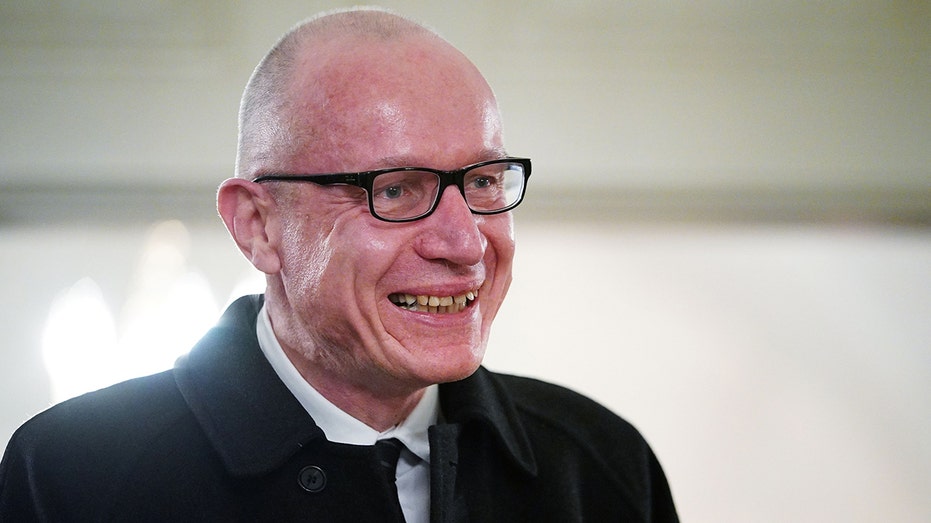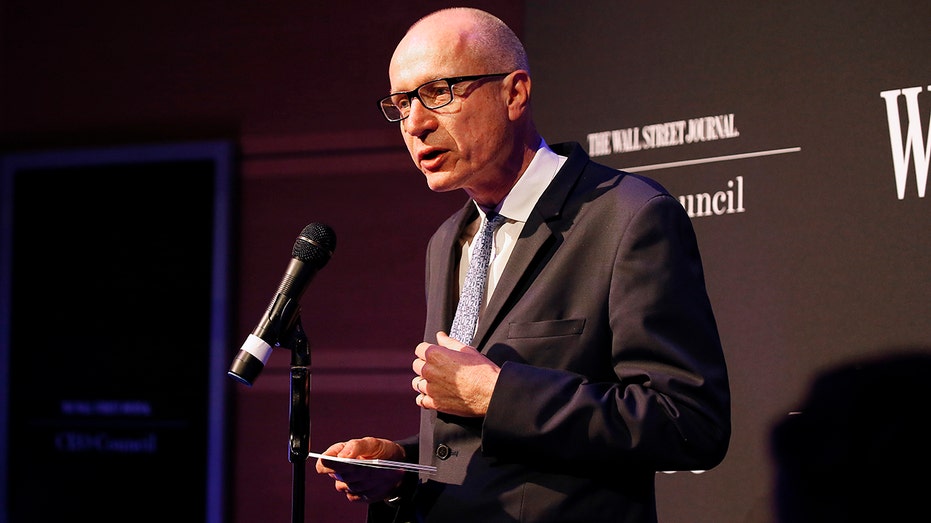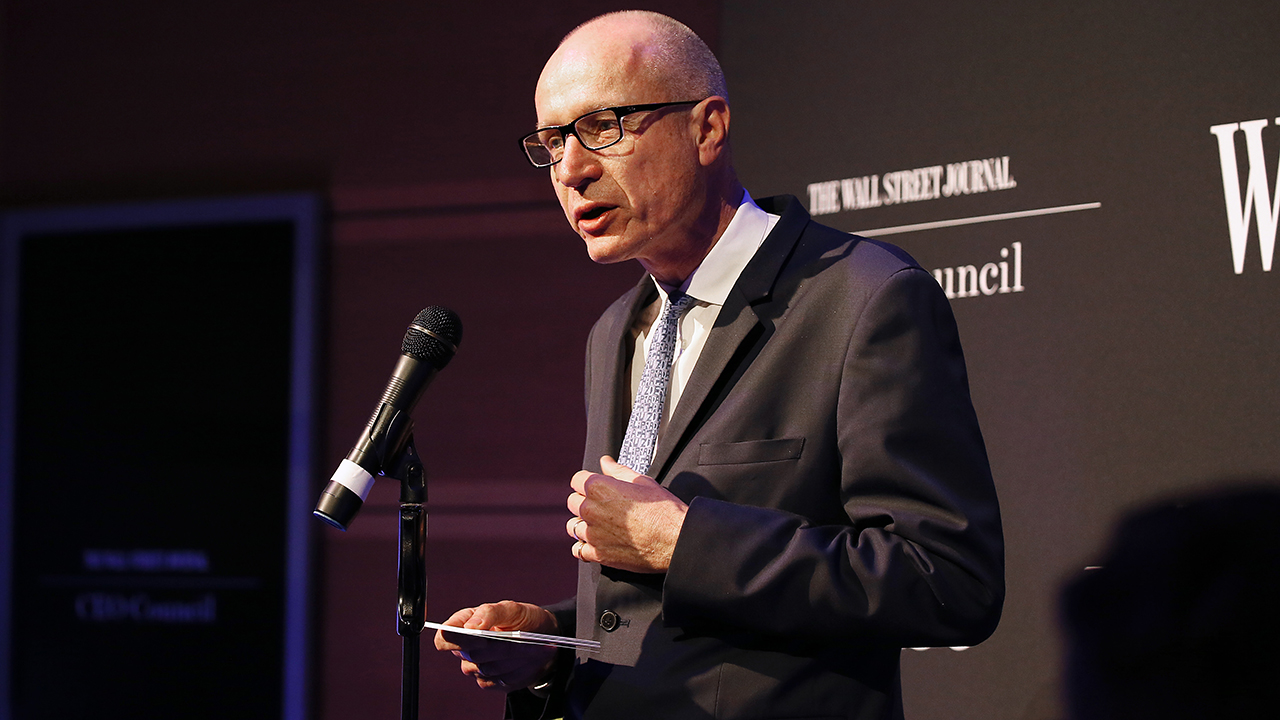News Corp. CEO Robert Thomson says 'digital denouement is looming'
Thomson discussed the roles of Amazon, Facebook and Google in the journalism landscape
News Corp CEO Robert Thomson recently cautioned that the “digital denouement is looming” when discussing tech giants such as Amazon, Facebook and Google and their role in the journalism landscape.
FACEBOOK, TWITTER, GOOGLE FACE FREE-SPEECH TEST IN HONG KONG
During an American Australian Association webinar, AAA Chairman Emeritus Jennifer Nason asked Thomson why News Corp. and its founder Rupert Murdoch are advocates for journalism, “in the context of the big social media platforms and their continued publishing and not paying for content,” and whether or not that is a fight that could be won.
“Well, it's an existential issue for journalism," Thomson said on June 25 during the “Life in the New Abnormal” webinar. "Journalism around the world is unsustainable. And you would have thought that in a digital age, if you're a digital startup without the cost of paper, without the cost of printing presses, that it should be easier to prosper, but whether it’s Vice, whether it’s Vox, whether it's BuzzFeed, none of these so-called digital natives have been successful either. And so, there's something wrong with the ecosystem."
Thomson said he is currently negotiating with “various countries” and has seen “regulators primed” to pursue cases.
APPLE, AMAZON, GOOGLE, FACEBOOK CEOS AGREE TO HOUSE ANTITRUST HEARING
“A general understanding amongst savvy media companies that some of our credulous colleagues have in the past been digital dilettantes. And this confluence of consciousness, actually, as you say, one would not have happened without Rupert, or Lachlan, frankly, and the astute activism of a feisty few at News Corp. over more than a decade -- because we've been contending with literally battalions of lawyers and legions of lobbyists dragooned by big digital,” Thomson added. “And there are as well the mindless myrmidons in the pay of Silicon Valley who are themselves exasperated that justice is a little closer to being done, i.e. content being paid for. And that the solipsistic sophistry of the past has been revealed as more vacuous than virtuous.”

News Corp. CEO Robert Thomson looks on as President Trump speaks after signing an emergency funding bill to combat COVID-19 in the Diplomatic Room of the White House on March 6, 2020. (Photo by Mandel Ngan/via Getty Images)
Thomson said that News Corp. has already reached an agreement with Mark Zuckerberg's Facebook in the United States.
“He had arrived at the place where he realized that he needed to pay for content and to ensure that there's a healthy ecosystem. The premium content demands a premium,” Thomson said, noting that he feels Google CEO Sundar Pichai has more roadblocks than Zuckerberg.
“I do have faith in Sundar Pichai personally at Alphabet or Google, whatever you want to call it. But look, that's a complicated company, and he's in a conceptual contest with flat-earthers and Philistines,” Thomson said. “But to be frank and fair, regulators around the world have figured Google out and a quick Google search by Google executives should reveal that immutable truth to them.”
Thomson feels that Google honchos who “imperiously believe in the press as panhandlers” have a “tokenistic and unsustainable” view of the situation.
“At the moment in the US, there are 50 state attorneys general who are looking to interview them, across both parties. So, it's a bipartisan concern. So, in that sense, the Google gig is up,” Thomson said.

Robert Thomson, CEO of News Corp speaks at The Newseum on December 9, 2019 in Washington, DC. (Photo by Paul Morigi/Getty Images for The Wall Street Journal )
Nason then asked about the Australian Competition and Consumer Commission in Australia, which recently announced restrictions on social platforms that use original journalism.
“So, this is a potentially quite revolutionary initiative by the Australian government. And I think one of, if not the first of its kind, one of the first of its kind,” she said. “Do you think it will stick? Is it going to work down there? What are the implications of this type of policy response do you think?”
Thomson called it “profoundly important” because it’s the “most enlightened, well put-together, well-researched tech travelogue of its kind” and will have a significant impact around the world.
“It's something that every Australian should be proud of,” he said.
Thomson went on to explain that “the data relationship between Amazon and its corporate clients is an unequal treaty,” making Jeff Bezos’ company a target of regulators.
| Ticker | Security | Last | Change | Change % |
|---|---|---|---|---|
| AMZN | AMAZON.COM INC. | 210.32 | -12.37 | -5.55% |
| GOOGL | ALPHABET INC. | 322.86 | -8.39 | -2.53% |
| FB | PROSHARES TRUST S&P 500 DYNAMIC BUFFER ETF | 42.42 | +0.35 | +0.84% |
“One area there that regulators, not just in Australia, are focused on, is that you can't dominate a horizontal marketplace like Amazon and have your products in sector verticals, as Amazon does with books. For example, it has, depending on the market, around 95 percent of the audiobook market, which is just unsustainable when it also has audiobooks. And not just in Australia, but globally, the digital denouement is looming,” Thomson said.
Nason asked Thomson if he feels journalism is “somehow fundamentally different” across the globe when comparing Australia, the United States and Europe.
“In terms of revenue sustainability, the issues are similar, if not exactly the same,” Thomson said, noting that many American news organizations have cut jobs over the past decade whereas many Australian papers have ended print editions.
CLICK HERE TO GET FOX BUSINESS ON THE GO
“It's indicative of the challenge that not only we face but publishers large and small, print and digital, are confronting around the world. It is a dysfunctional digital landscape that the rewards have disproportionately gone to distributors, not to creators, and it's rectifying that imbalance that's so important which is, you know, again back to the ACCC work and the DOJ in Washington, the CMA in London,” he said. “All the regulators have, they actually have been on a journey, and it's become more and more obvious to them, the longer they've looked, the longer they've had experience with this debate, that whether it be journalism or some other professions, that unless you resolve these contradictions, the commercial damage is obvious, and the social harm will be profound.”
News Corp. and FOX News Media share common ownership.




















